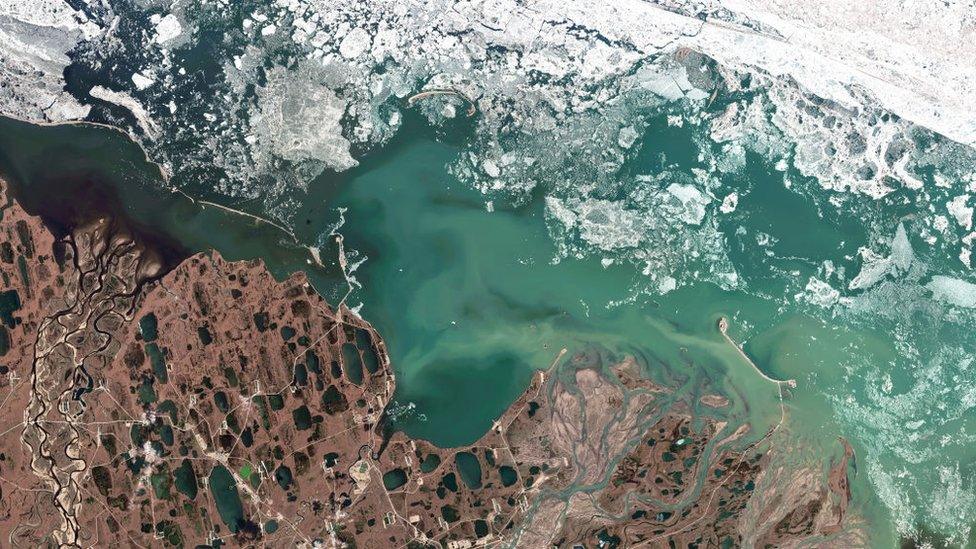John Kerry in Beijing: Can US and China set aside rivalry for climate action?
- Published
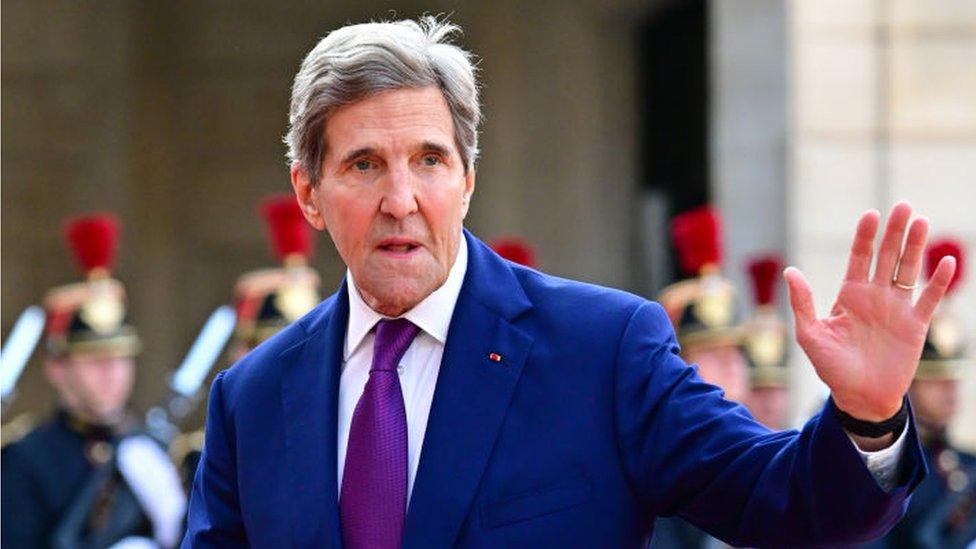
Mr Kerry is the latest top official to be dispatched to China from Washington
As John Kerry touches down in China, the main question will be whether the world's biggest superpowers - and polluters - can dispel diplomatic tensions to focus on key climate goals.
Mr Kerry, the US special envoy on climate, is the latest top official to be dispatched from Washington following visits by Antony Blinken and Janet Yellen - as the US seeks to restart stalled relations with Beijing.
He will meet his Chinese counterpart Xie Zhenhua and other officials on his four-day trip. Mr Kerry's office says he wants to engage with China on "increasing implementation and ambition", and ensuring a successful COP28, the UN climate change conference scheduled for the end of the year.
While their meeting is not widely expected to yield any concrete decisions, it will be seen as a conversation starter. They are likely to discuss their common challenges of accelerating their switch to clean energy and reducing carbon emissions.
The two countries are the biggest investors in renewable energy, with China alone making up more than half of the world's total renewable energy investment, according to one assessment, external.
But they are also the world's two largest carbon emitters, making them the "G2 of energy consumption, energy use and pollution," noted Dan Kammen, energy professor at the University of California, Berkeley.
"So both are making major steps, but neither are actually seeing emissions fall yet," he told the BBC Newshour programme.
Contradictory moves
Both governments are evidently still struggling to balance the demands of economic growth and reducing emissions, leading to contradictory moves that have attracted criticism from environmentalists.
It wasn't so long ago that China appeared keen on reducing its reliance on coal.
In 2020, President Xi Jinping announced key carbon neutrality goals after a steady ramp-up in previous years in clean energy infrastructure. Years of worsening smog in Beijing and other cities had triggered widespread public anxiety, prompting authorities to progressively shut down coal-fired power plants and curtail coal production.
But since then, blackouts have been plaguing the country, mainly attributed to either the coal power slowdown or severe droughts affecting hydropower output. The resurgent post-Covid economy, both domestically and globally, has seen a greater demand for power as China's factories increase production. Extreme heatwaves - like the one seen this summer - and cold snaps have also led to higher electricity consumption.
China has now shifted to prioritising its energy security. That means moving back to coal power, because this is seen as more reliable when compared with the intermittency of wind and solar energy.
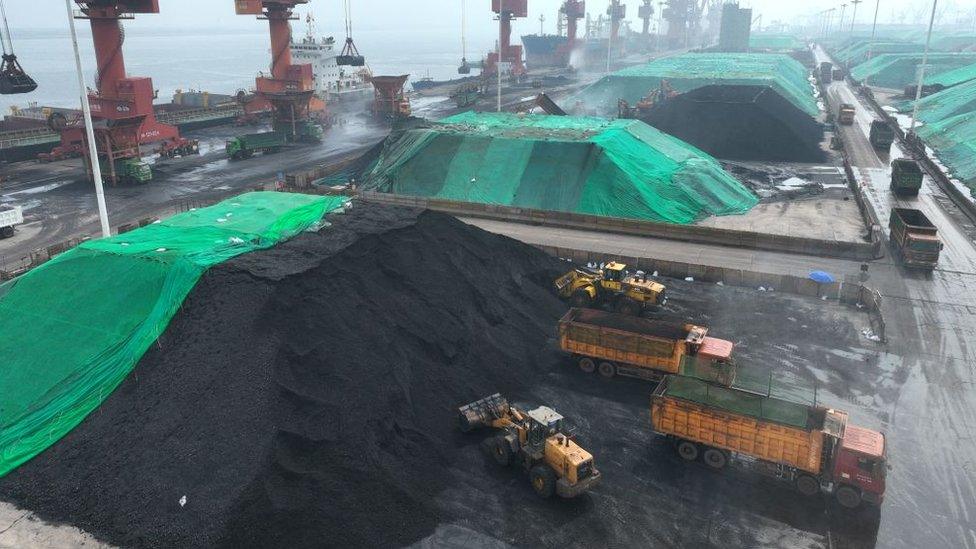
China has long relied on burning coal for its power needs
Last year, China approved a dramatic increase in its coal power output, the equivalent of approving two large coal power plants a week, according to one analysis, external.
Another found, external that while renewable energy now forms a greater share of China's power output, coal-fired power was still rising in absolute terms because of the sheer demand.
Activists have criticised the return to coal as a lazy way of solving the problem, arguing that there are market policies and infrastructure solutions that can make clean energy supply more consistent.
As for the US, it has recently passed two pieces of legislation that would put billions of dollars into clean energy. But it has also just approved one of its largest oil and gas drilling projects in recent years in Alaska.
US carbon emissions also grew in 2022 as the country consumed more natural gas during extreme weather that year, according to the International Energy Agency.
"The US is no better… so each one has a long way to go, each one needs to egg the other on, and most importantly all the countries all around are watching to what degree the US and China absolutely are dead serious about the climate goals," said Prof Kammen.
Laying out their wishlists
Analysts say Mr Kerry may try to persuade China to fully capitalise on its clean energy resources and achieve carbon neutrality more quickly.
China aims to peak its carbon emissions by 2030 and become carbon neutral by 2060 - goals which some say are too far off and give it too much leeway. Others have also taken issue with the fact that China is still considered a "developing country" by the UN, which means it is held to different standards than the US and other major powers.
Earlier this month Ms Yellen urged Beijing to donate to international climate funds set up by richer countries to help poorer economies struggling with climate change. China has rejected such requests in the past, citing its UN status.
China's own wishlist may include the removal of a recently reinstated US tariff on Chinese-manufactured solar panels. It may also object to proposed US taxes on foreign steel and aluminium based on carbon emissions, which would hit Chinese exports hard.
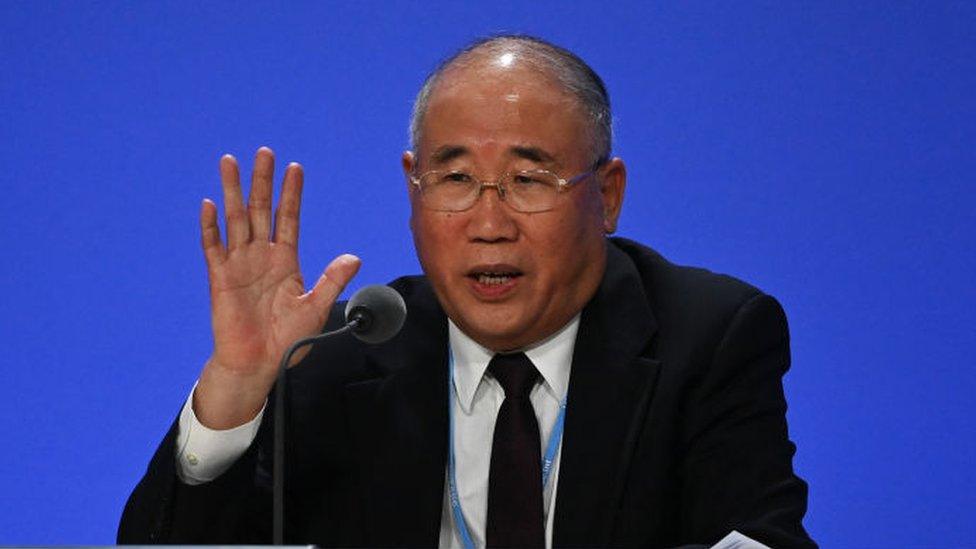
China's special climate envoy Xie Zhenhua will be among the officials welcoming Mr Kerry
Both sides could also use climate issues as a bargaining chip in their wider trade and political negotiations.
China would be reluctant to be seen as giving in to the US given the current state of their relationship, warned Li Shuo, Greenpeace East Asia's senior global policy advisor based in Beijing.
But there is an opportunity for Mr Kerry and Mr Xie to "capitalise on this relatively calm period… to separate their bilateral relationship from their climate conversation", he told the BBC.
In other words, both countries need to urgently put aside their rivalry to address the climate crisis, say experts. There is a hope for a return to the amity seen at the 2021 COP meeting, where they announced a surprise joint agreement to accelerate emissions reductions.
"You could still make an argument to decouple your trade, as long as you are willing to bear the cost. But you can never make an argument to decouple climate engagement because… this issue will never be singlehandedly solved by the US or China. It is truly a global issue that requires all hands on deck," said Mr Li.
Prof Kammen agreed. "Let's recognise that if we don't fix this, all our disputes about human rights and things are important - but they are truly rearranging deckchairs on the Titanic," he said.
Related topics
- Published29 October 2021
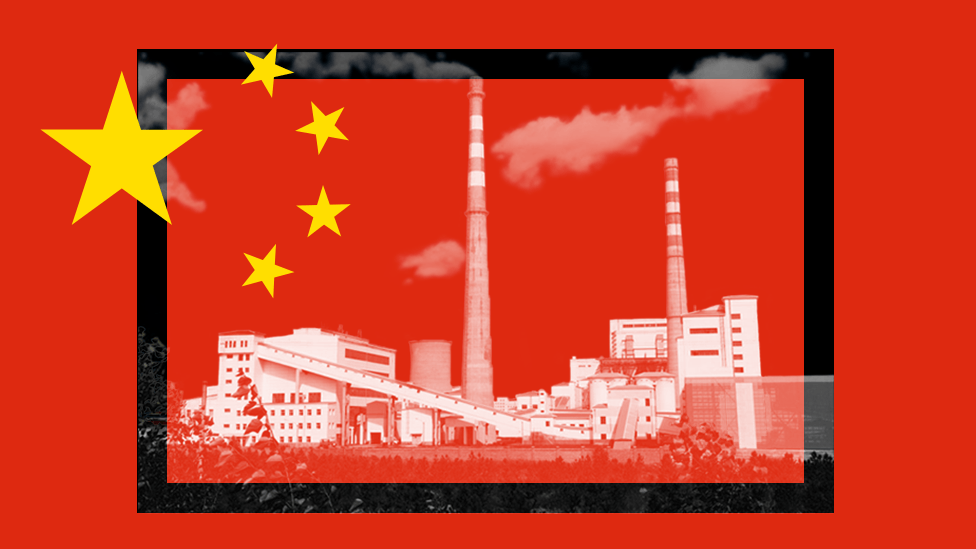
- Published8 July 2023
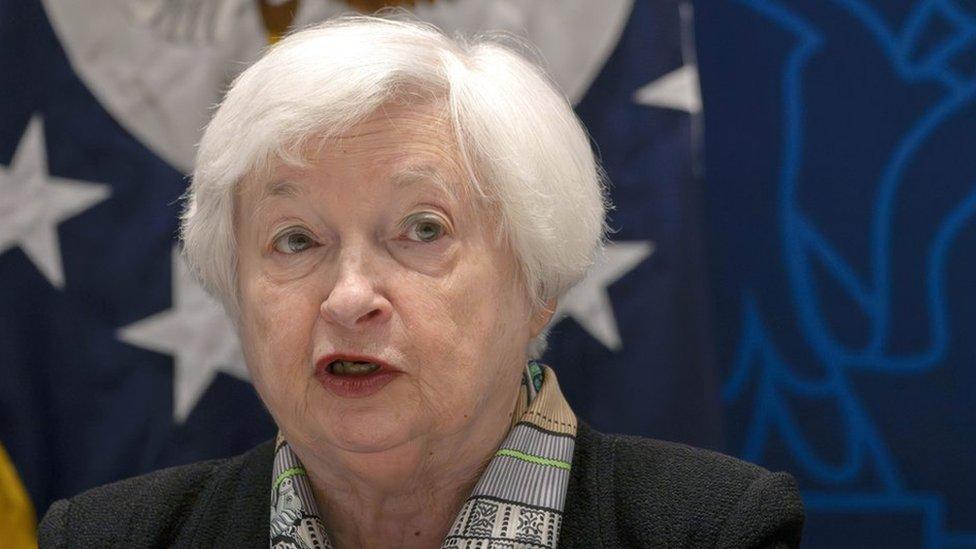
- Published14 March 2023
